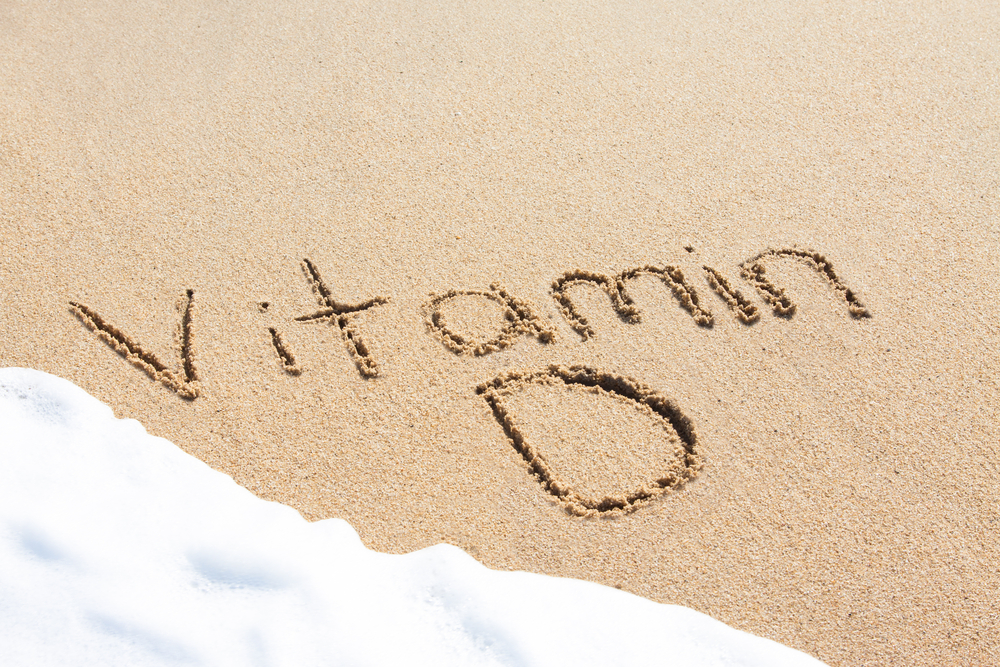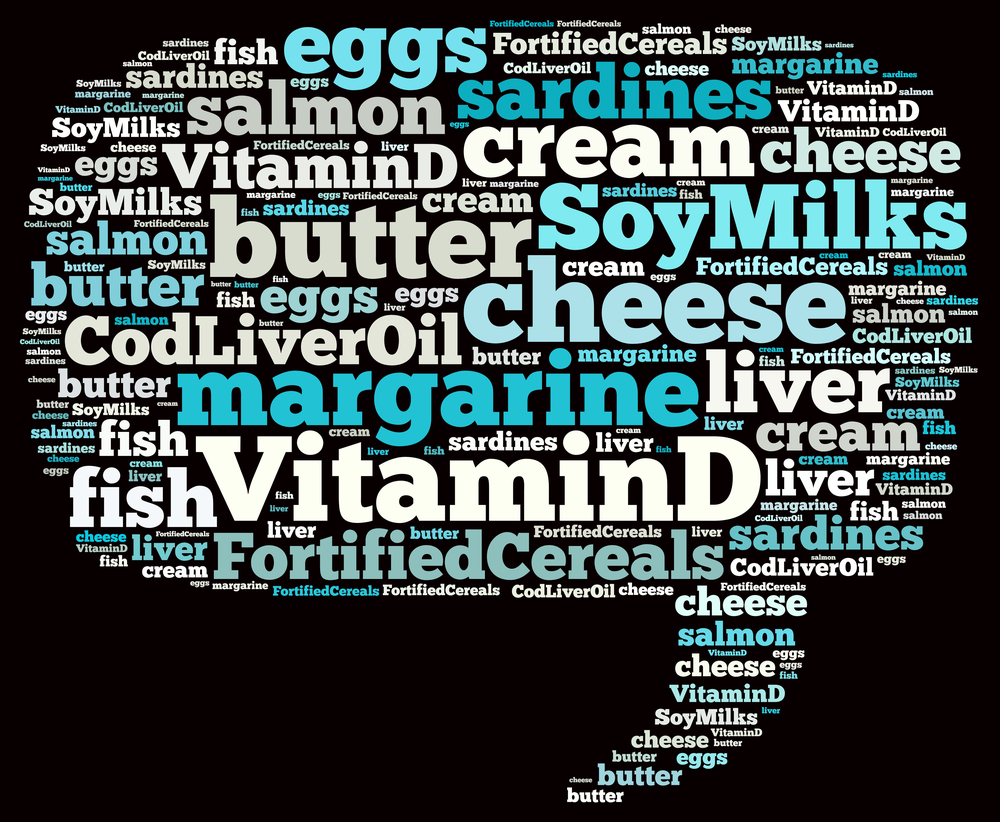Sometimes known as the ‘sunshine vitamin’, and now more frequently referred to as a hormone (it’s produced by the kidneys when we are exposed to sunlight on our skin), vitamin D is an essential requirement for our bodies to function healthily.
What Does it Do?
Its main function is the regulation of calcium absorption and phosphate levels. Taking off our lab coats, what does that mean? Well, it means that a shortage can lead to the following problems:
– asthma in children;
– depression;
– general malaise;
– seasonal affective disorder (or SAD);
– exacerbation of allergies.
Vitamin D deficiency has also been linked to psychological problems and osteoporosis in some elderly patients.

Vitamin D in the sand – image courtesy of Shutterstock
The Importance of Getting Out and About
As this vitamin is naturally produced in otherwise healthy bodies exposed to as little as 20 minutes natural sunlight a day, insufficient Vitamin D is rare. However problems can arise in those parts of the world less blessed with those glorious rays, particularly in the winter months. A brisk walk, even in Winter, is usually enough to maintain those vital vitamin D levels – and a nice side-effect is that it will improve cardiovascular fitness and encourage healthy blood pressure also!
Eat Yourself Sunny
Thankfully, the human body is also able to store vitamin D and its production can be supplemented with the addition of foods like:
– oily fish (such as salmon and mackerel);
– egg yolks;
– some mushrooms.

Vitamin D sources word cloud – image courtesy of shutterstock
However, perhaps a more reliable source during those gloomy, sunless winter months are food supplements or fortified drinks. Most health food shops, pharmacies and even supermarkets these days stock a vast array of food supplements in the form of tablets and powders, but you can also get a healthy boost of vitamin D from fortified foods including milks, yoghurts and fruit drinks, which also have the added benefit of boosting other essential vitamins and minerals in you diet as well.

